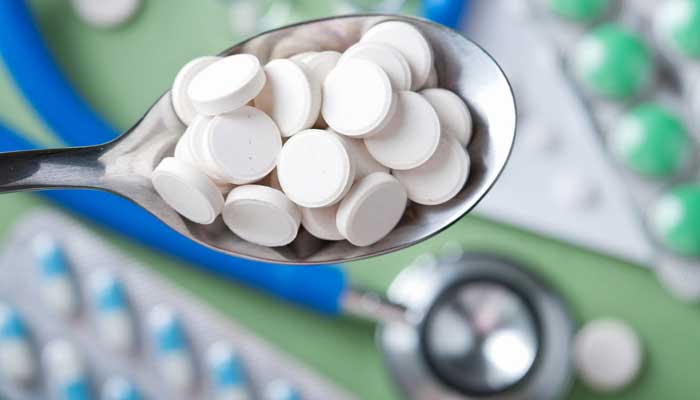When considering the benefits of GMP certification, you’ll want to make sure that the workshop you’re considering has been taught by a GMP-certified instructor. The training materials that the instructor provides should be accurate and conform to regulatory expectations. Additionally, the training must be documented. This includes an attendance sheet containing the names of attendees and the instructors.
Good Manufacturing Practice (GMP) certification
If you are planning to establish a tablet manufacturing business, obtaining Good Manufacturing Practice (GMP) certification is an excellent choice. GMP training will help ensure consistency and compliance of site operations. You should also ensure that your employees have been trained. The training should be interactive and include opportunities for dialogue among employees. The proper environment will encourage attendees to raise concerns and question required practices. This will help you identify areas for improvement and alert management to possible violations.
The process and quality control requirements of GMP regulations are necessary to produce consistent and safe products. The process involves organization, documentation, sampling, testing, and verification. All employees should follow these processes. Any deviations should be reported and investigated as quickly as possible. Good Manufacturing Practices also require the use of up-to-date technologies and systems.
The Good Manufacturing Practices (GMP) regulations are an internationally accepted set of standards for manufacturing medicines. These standards are developed and maintained by public and private organizations, including the pharmaceutical industry. These guidelines govern production, distribution, and supply of drugs. They are also required for marketing authorization.
GMP guidelines also require that all employees be trained. Training is conducted on continuous improvement and documentation of processes. The training should include an overview of the process and how it applies to the pharmaceutical industry. As a manufacturer, you need to implement a complete documentation system. This will ensure that your processes and products meet the standards of the Good Manufacturing Practice (GMP) standards. Ensure that the correct starting materials and packaging materials are used. In addition, make sure all the relevant controls are conducted on intermediate products.
Compliance with basic GMP regulations
Complying with basic GMP regulations in a tablet workshop is essential to ensure high-quality manufacturing. These regulations establish quality management standards that are consistent throughout the entire manufacturing process. By following these standards, manufacturers can reduce the risk of recalls and other compliance problems. Additionally, GMP regulations help Life Sciences companies protect their customers.
The first step in ensuring compliance with basic GMP regulations is educating employees. IPEC-Americas developed online self-paced presentations for front-line employees, including those in the production, laboratory, warehouse, and maintenance areas. Additionally, there are courses designed specifically for management, emphasizing management’s role in the quality management system. After completing the course, attendees receive a certificate of attendance.
The quality management team must be involved in all aspects of production and review all documents related to GMPs. The responsibility of these individuals should never be delegated to any other department. The quality management team should have an appropriate number of operating and managerial personnel, with each position having a specific set of responsibilities. The responsibilities should be clearly laid out, and no one person should have too many responsibilities. In addition, the team should be trained regularly, which can help improve its overall performance.
For sensitive pharmaceutical materials, GMPs require dedicated premises. These are also required for production of highly active ingredients, such as beta-lactam antibiotics. This includes certain hormones and cytotoxic agents. In addition, the production of sensitive products such as insulin, birth control pills, and dietary supplements must be carried out in facilities dedicated to these substances.
The regulatory framework for GMP has evolved in different parts of the world. In the European Union, the European Medicines Agency (EMA) has developed and harmonised GMPs for 28 countries. In other parts of the world, countries have their own GMP regulations. Regulatory agencies have their own specific requirements and interpretations. This is why companies working in these fields may collaborate with others to create a network that can improve production standards.
Compliance with critical parameters of production process
Compliance with critical parameters of tablet production is critical to the quality of finished tablets. The process of mixing tablets in a coating pan, their physical movement during coating, and the drying process affect the quality of finished tablets. Some of these parameters are especially important for paediatric and geriatric patients, as they may have different needs than the general population. These patients may require additional processes such as taste-masking, liquid dosing, or multi-particulate dosages.
Documentation of GMP training
GMPs are mandatory for pharmaceutical companies and ingredient suppliers. It is important for the participants to be aware of and comply with the regulations. Training is ongoing and is repeated at prescribed intervals. To ensure compliance, documentation is essential. Often, this takes the form of PowerPoint slides. Before handing out these slides, however, ensure that they comply with regulatory requirements and are accurate.
The training should relate to the specific job role at the site. It should also incorporate site operations and observed deviations from GMPs. Ideally, the instructor is a company employee with relevant experience. If necessary, a consultant can be hired to help. Regardless of the source, the training should be interactive and provide a forum for discussion among employees. The proper training environment encourages attendees to raise questions and concerns and alert management to potential improvements.
All employees working at a pharmaceutical facility must be trained on GMP. Many API manufacturers already comply with ISO standards. In addition to producing pharmaceutical drugs, these facilities also produce the active ingredients that are used in over-the-counter medications. As a result, they typically have a high percentage of employees who have GMP training.
The FDA will perform routine inspections of GMP-certified facilities to ensure compliance with the regulations. These audits will help ensure that the quality of the production process is high. Many countries also conduct pre-approval inspections to ensure that a pharmaceutical company follows the guidelines. These inspections are conducted to ensure the quality and safety of the products.
Inspections by National Regulatory Agencies
The process of inspections by National Regulatory Agencies (NRAs) of tablet workshops is a complicated process that involves different parts. As a result, the quality of the inspection report is very important. In addition, it is important to document observations and violations clearly. Inspections must be conducted using an objective set of performance factors, as defined in the applicable regulations.
Inspection reports are generated according to several criteria, including the reason for the inspection, the scope and the nature of the inspection. The inspection report describes the observations and summarises any deviations from applicable legislation. Typically, the inspections are carried out as spot checks within one or more areas of a trial. Deviations from the applicable law can be major, critical or minor.
New inspector training courses cover the basic inspection skills and GMP areas. Among other things, they cover the supply chain, facility layout, aseptic manufacturing, and cleaning validation. These courses are specifically designed for NMAs and their non-Member National Medicines Regulatory Agencies. They also provide hands-on experience, such as microbiology and chemistry laboratory training.
The FDA’s inspection program is supposed to be equivalent to state inspection programs. Its purpose is to protect the public by inspecting and certifying food products. However, state agencies have additional regulatory functions, which are not part of the federal program. These agencies must also have a written training plan to ensure that their inspectors have been properly trained.





